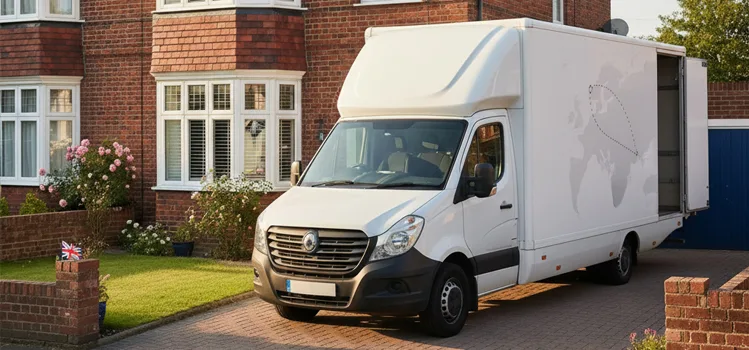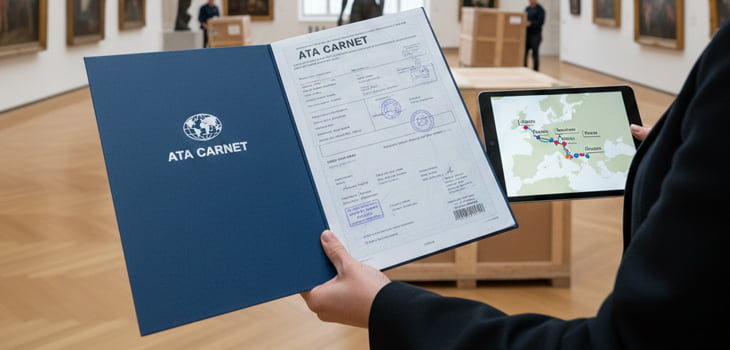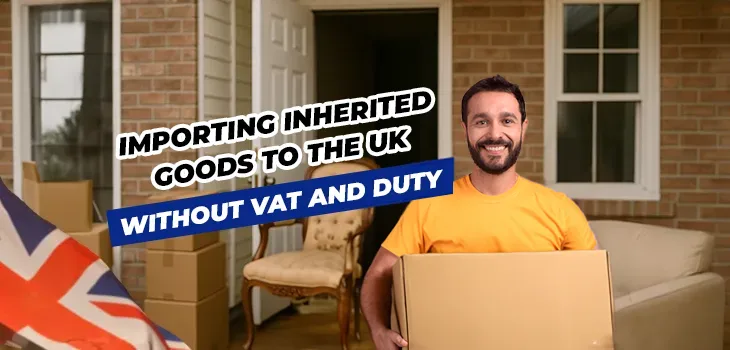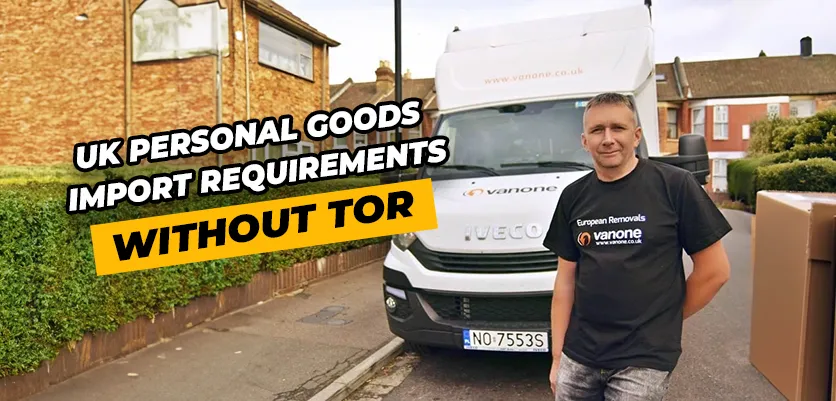
Relocating from the UK to mainland Europe involves numerous logistical challenges, and transport sits at the heart of every successful move. Whether relocating for work, retirement, or a fresh start, understanding how transport impacts the removal process can mean the difference between a smooth transition and a stressful ordeal.
The most important stage of any European removal is the actual transfer of possessions across international boundaries. In comparison to the moves in the UK, cross-border movements involve ferry crossing, more driving, new customs after Brexit, and the ability to coordinate across time zones and languages.
With efficient transport planning, three main aspects are directly influenced, and these are timing, cost and condition of belongings upon arrival. An effective transport plan guarantees deliveries that are in time, on budget and in good condition.
The transport model is one of the factors that influence hassle-free European removals to a great degree. Direct transport involves having one vehicle to pick up the contents of the UK address and deliver it directly to the destination in Europe, which would reduce any form of handling as well as risks. Conversely, there are hub-and-spoke models where a removal company carries out transfers of belongings between two or more vehicles and a warehouse. Every place of transfer introduces chances of delays, miscommunication or damage. In the case of houses that place a greater emphasis on simplicity and security, direct transport has its own benefits.
The type of vehicle used in the European removals has a significant effect on the efficiency and cost. Most household moves are carried out using Luton vans which average 15 cubic metres. They have sufficient space to accommodate flats and smaller houses and are nimble enough to fit in the narrow European streets. Bigger houses might require a full lorry service which is cheaper but more capacity. Part-load services (Van sharing) provide alternatives to budget-friendly but may require a little bit longer transit period since the vehicle will have to visit more than one customer.
All removals UK to Europe will require a crossing of ferries or the Channel Tunnel, which makes logistics complicated. Depending on the route, ferry times, boarding process, and the time taken to cross, are different. The Dover-Calais crossing is the most common and the shortest, with an approximate time of 90 minutes. Relocations to Southern Europe, Scandinavia or Eastern Europe can be done via alternative departure points or through long ferry routes. The providers will need to schedule the booking ahead time, take into account the delays because of weather or industrial action, and the cost of crossing.
Transport providers are now required to comply with extra customs due to the UK exit from the EU. Detailed inventory lists and customs declarations are now required to be properly documented. Established businesses have spare time in their schedule to take care of customs at the ports and keep abreast of the changing laws, which vary across EU member countries. The quality of their services would avoid expensive delays based on unfinished or incorrect paperwork.
Human factor of transport is important. The experienced drivers who are conversant with European routes drive smoothly, eliminate trouble zones, and cope with unforeseen difficulties. They are aware of the best times to drive without causing heavy traffic, they have alternative routes to take during the congestion of the motorways, and they understand how to communicate using different languages. An educated driver also handles things in a specific manner when loading and taking them out since people tend to attach things so that they will not move. Such a skill is essential in particula,r when dealing with delicate or precious freight.
Whilst road transport handles the majority of UK to Europe removals, certain situations benefit from multi-modal approaches. For instance, moves involving vehicles alongside household goods require specialised arrangements.
Companies like A1 Auto Transport specialise in shipping vehicles internationally, offering enclosed transport, container shipping, and roll-on/roll-off services. Coordinating vehicle shipment separately from household goods often proves more efficient than attempting to arrange everything through a single provider, particularly for moves involving classic cars or multiple vehicles.
Realistic transit time expectations prevent frustration during European moves. Factors affecting delivery speed include:
Proper insurance coverage provides you with much-needed cover at the time of transportation. The general Goods in Transit policy includes the loss or damage because of accident or ferry or other unforeseen events when on the road.
Knowing the terms of the insurance, limits of the coverage and the claims procedures prior to the move helps to avoid unpleasant surprises. Transport providers are expected to understand what is included, what comes at a premium and how objects should be recorded to gain insurance coverage.
Effective loading plans optimise the space of a van, and also protect goods. The professional drivers apply systemic methods: at the bottom of a truck, there are heavy products, fragile ones are transported separately, furniture is covered, and gaps are filled to prevent movement.
The efficiency of unloading in the destination will be determined by the arrangements at access, availability of parking, and the availability of assistance. Elimination of these details in advance prevents delays and avoids additional delivery day expenses.
To enhance transportation, contemporary removal firms are increasingly embracing technology to enhance transport arrangements. The GPS tracking will also enable customers to check on the status of their items in real time, whereas the digital inventory will ensure that nothing is lost. The withdrawal of online bookings facilitates the process, and automated notifications keep everyone informed during the process.
Such tools minimize stress by giving an insight into every step of transportation, including the point of collection to the final delivery.
Transport represents the largest component of removal costs. Several factors influence pricing:
Customers can facilitate smoother transport by:
Transport’s environmental impact increasingly concerns eco-conscious movers. Fuel-efficient vehicles, optimised route planning, and part-load services that maximise vehicle capacity all reduce the carbon footprint of European removals.
Some removal companies offset emissions or operate newer, cleaner vehicle fleets. For environmentally conscious customers, inquiring about sustainability practices helps align removal choices with personal values.
Selecting a transport provider for European removals requires evaluating several factors beyond price. Consider:
Understanding common mistakes helps prevent problems:
The removals transport sector continues evolving. Enhanced tracking technology, electric vehicle adoption, and streamlined customs procedures promise to improve efficiency. However, the fundamental principles remain unchanged: reliable vehicles, experienced drivers, and careful planning form the foundation of successful European removals.
Transport includes the route planning, vehicle selection, customs navigation, insurance, and cross-border coordination. Understanding how transport influences each stage of a relocation will enable customers to make informed decisions, have more reasonable expectations, and have a stress-free experience of relocating to Europe from the UK.
The question is, are you shifting a flat or a complete house? The success of your European move is determined by the quality and effectiveness of the transport services. You can minimise stress and can have positive outcomes by dedicating time to researching your options of transportation options, selecting well-proven companies like VanOne, and planning before moving.
 Moving in Together in the UK: Essential Legal Steps for Couples
Moving in Together in the UK: Essential Legal Steps for CouplesMoving in Together in the UK: Essential Legal Steps for Couples Moving in with your partner can be…
 Navigating Art Exhibitions in the EU with an ATA Carnet Post-Brexit
Navigating Art Exhibitions in the EU with an ATA Carnet Post-BrexitNavigating Art Exhibitions in the EU with an ATA Carnet Post-Brexit The world of art is inherently global,…
 A Guide to Importing Inherited Goods to the UK without VAT and Duty
A Guide to Importing Inherited Goods to the UK without VAT and DutyA Guide to Importing Inherited Goods to the UK without VAT and Duty This document outlines the process…
 UK Personal Goods Import Requirements without ToR
UK Personal Goods Import Requirements without ToRUK Personal Goods Import Requirements without ToR Planning to transport personal goods to the UK without a Transfer…